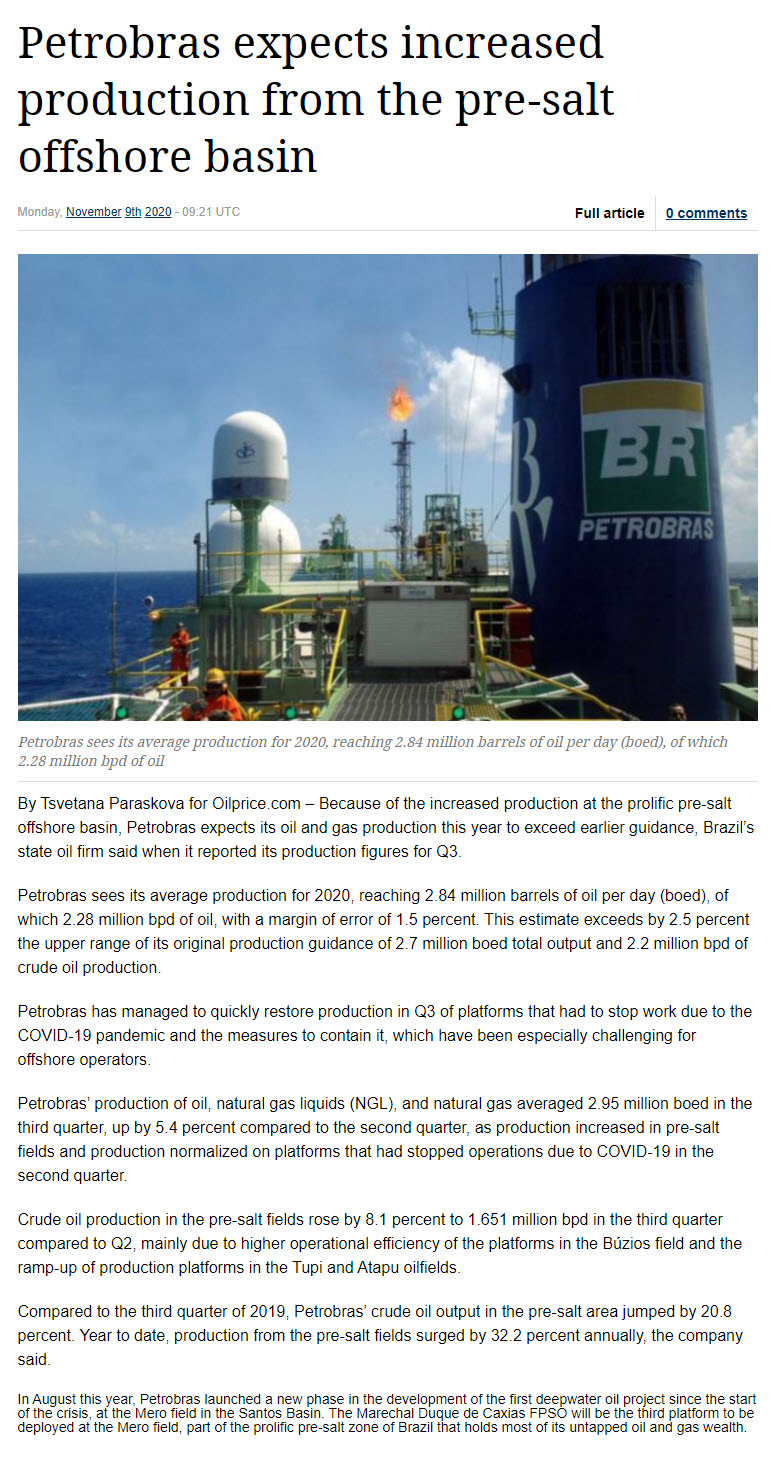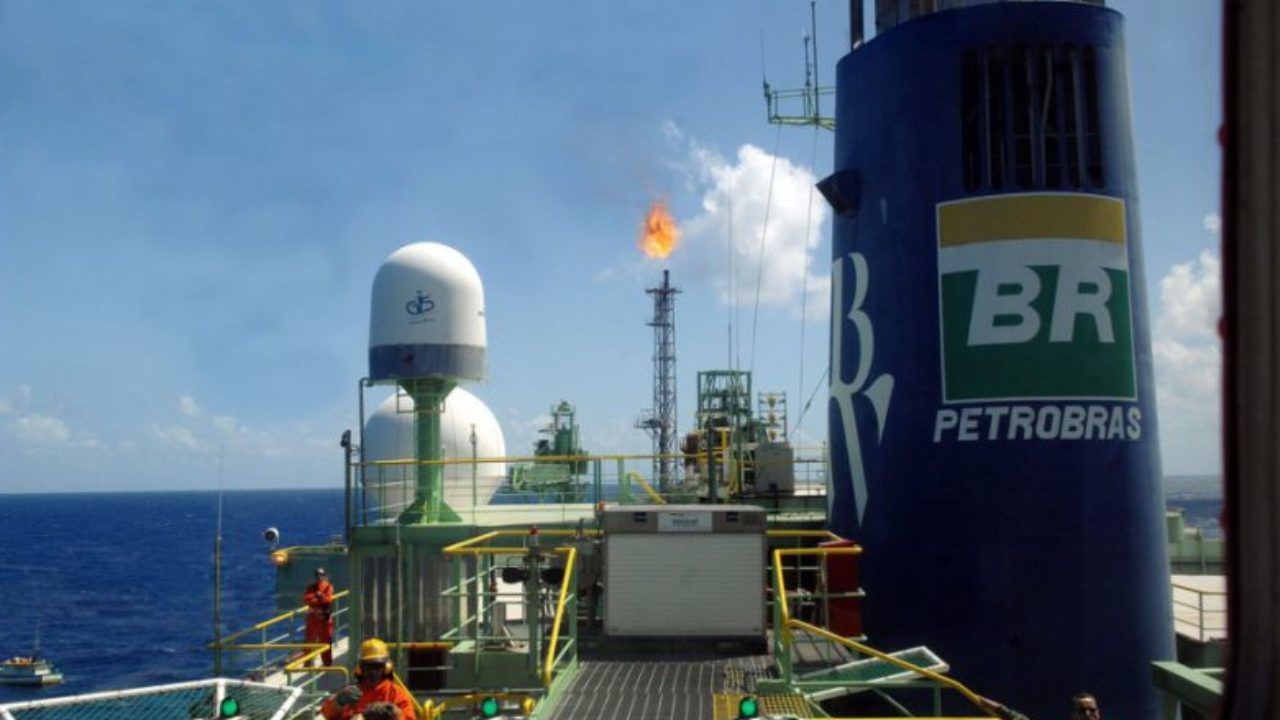MercoPress • Petrobras expects increased production from the pre-salt offshore basin
Because of the increased production at the prolific pre-salt offshore basin, Petrobras expects its oil and gas production this year to exceed earlier guidance, Brazil’s state oil firm said when it reported its production figures for Q3.
Petrobras sees its average production for 2020, reaching 2.84 million barrels of oil per day (boed), of which 2.28 million bpd of oil, with a margin of error of 1.5 percent. This estimate exceeds by 2.5 percent the upper range of its original production guidance of 2.7 million boed total output and 2.2 million bpd of crude oil production.
Petrobras has managed to quickly restore production in Q3 of platforms that had to stop work due to the COVID-19 pandemic and the measures to contain it, which have been especially challenging for offshore operators.
Petrobras’ production of oil, natural gas liquids (NGL), and natural gas averaged 2.95 million boed in the third quarter, up by 5.4 percent compared to the second quarter, as production increased in pre-salt fields and production normalized on platforms that had stopped operations due to COVID-19 in the second quarter.
Crude oil production in the pre-salt fields rose by 8.1 percent to 1.651 million bpd in the third quarter compared to Q2, mainly due to higher operational efficiency of the platforms in the Búzios field and the ramp-up of production platforms in the Tupi and Atapu oilfields.
Compared to the third quarter of 2019, Petrobras’ crude oil output in the pre-salt area jumped by 20.8 percent. Year to date, production from the pre-salt fields surged by 32.2 percent annually, the company said.
In August this year, Petrobras launched a new phase in the development of the first deepwater oil project since the start of the crisis, at the Mero field in the Santos Basin. The Marechal Duque de Caxias FPSO will be the third platform to be deployed at the Mero field, part of the prolific pre-salt zone of Brazil that holds most of its untapped oil and gas wealth.
Fuente: MercoPress



